Buy a diesel car if and only if you drive more than 2500 kilometres every month, goes common wisdom. The reason for this is purely economic; a diesel car might save you money on running costs, but the initial purchase price and the higher service costs will only be recovered if your monthly running exceeds 2500 kilometres. If not, stick to petrol. 
This month, we look at seven diesel hatchbacks that are vying for top honours. We tested the new Polo diesel last month and this time we’ve sussed out Ford’s contender as well. Then we put them all together in a free for all with some interesting results. We’ll focus on three main parameters, viz. performance, drivability and fuel economy. Other aspects notably quality, interiors, space and flexibility as well as ride and handling we’ve already elaborated on in last month’s comparo.
FORD FIGO
The Figo, which shares the same engine as the Fiesta and the Ikon, is up first. When you look at cold numbers, anybody rooting for the Figo would get a sinking feeling in their gut. The car posts the slowest time to 100km/h and its lethargy is evident in the roll-on figures too. The Figo takes almost 18 seconds to get to 100km/h, which in 2010, has us rubbing our eyes in disbelief. It’s a full second slower than the Fiesta which shares the same engine and almost two seconds behind the Ikon. We’d forgive it these slowpoke times if it made it up at the pumps, but here again the Figo fizzles out. An overall figure of 14.25kmpl for a small diesel car just doesn’t cut it these days. The bargain basement price does win it some brownie points though, but how much will this affect the final outcome?
MARUTI SWIFT
I can wax eloquent about the Swift. If ever there was a car that deserved its name, it has to be this swift little Maruti. Fleet of foot and light in response, the Swift is always game to tango. For some, the diesel has always been as much fun as the petrol. The Multijet engine’s good drivability makes the Swift a pleasure to play with. It’s pretty quick to 100km/h, taking a smidgen over 14 seconds and its roll-ons are about the best in the business. In fact, in third gear it takes less than 11 seconds to go from 40-100km/h. Maruti have got the tuning spot on in this car and although we see the same engine under the bonnet of many current hatches, in the Swift it feels about perfect. If you’re smiling when you’re driving, you’ll be grinning broadly at the pumps. The Swift diesel returns a jolly good economy figure of 19.25kmpl. Have your cake and eat it too? Pretty much.
MARUTI RITZ
Maruti has often enjoyed product overlap and in the case of the Ritz, it isn’t any different. It shares the same engines as its Swift brother and there’s a lot in common under the skin too. Nonetheless, these two cars couldn’t be more different in character. Let’s put aside the debate about space and flexibility for the time being. Tall boy designs make sense if you’re carrying stuff which won’t fit in other regular hatches, but as far as interior space and passenger comfort is concerned, having a lot of air around your ears doesn’t mean much for eventually you will come to a corner. And all this air around your ears won’t help when you experience body roll, amplified by the skyscraper design. Once again let’s look at cold numbers. To 100km/h, the Ritz is slower than the Swift, not by much, but it’s slower. Slower in the roll-ons too, but then it is 35kg heavier. Where the Ritz does swing one in its favour is its fuel efficiency. An overall figure of 20.75kmpl is simply amazing. More stunning is the highway only figure of 32kmpl. If you’re planning to start a Mumbai-Pune Cool Cab service, the Ritz is the car for you.
HYUNDAI i20
Hyundai’s big ‘un has a lot riding on it; it comes with a reputation. Hyundai diesels have always made headlines in the performance pages, from the three-cylinder which debuted in the Accent to the more recent four-pot in the Verna and the Getz. Hooligans all, they were nevertheless slammed for their on-off power delivery and huge lag. With this latest engine, Hyundai has made strides to correct that reputation. In fact, the i20 now has a six-speed gearbox with closer ratios to work around this. We haven’t had the opportunity to test it yet, but given what the car achieves currently with the five-speed box, we can only assume it will be better. 
What’s truly unexpected of the i20 however, is its excellent city fuel economy. With an in city figure of 17.8kmpl, the i20 is only marginally less than the Polo in this segment. Yes, you do feel some lag below 1800rpm or so, but it isn’t any more pronounced vis-à-vis any of the other cars here. You feel a slight hesitation before the engine begins to spin cleanly, but after that this motor really sings. It has the highest power and torque ratings of all the seven cars on test here and this shines through. The i20 is the fastest car to 100km/h and its third gear roll-on times are impressive as well. Unfortunately, the lag plays up in the fourth and fifth gear roll-on times, where the i20 fares badly. Again, I assume the six-speed ‘box should compensate somewhat.
FIAT PUNTO
Fiat fathered the Multijet diesel and its rightful place is under the bonnet of the Punto. Maruti may have stolen a march in India with this engine, and indeed in the Punto, it feels like a very different mill. It doesn’t have quite the same free revving character of either the Swift or the Ritz and nor does it pull quite as strongly. Of course different gearing and a slight increase in weight do blunt the Fiat’s cause. The Punto is only marginally quicker than the Figo in outright acceleration, but its roll-ons are quite respectable. The Punto does feel a little underpowered though, but that is mainly because given its grip and handling, you feel like you would like to push a little more. Also, it’s geared a little tall and so at times you have to downshift to get going. The Punto fares reasonably at the pumps which does win it favours. A figure of 15.9kmpl in the city isn’t stellar, but it’s good nonetheless. On the highway run, our Punto recorded an impressive 28kmpl, which is good news for those who like to make those out of town trips. 
SKODA FABIA
When the Fabia was first launched, everybody made a big deal about how premium it was. Indeed, it still does feel premium. It has a very grown up look and the interiors are airy and spacious too. Under the bonnet of the Fabia is a three-cylinder pump duse motor, which is a bit of an anachronism today given that the VW group as a whole has abandoned it in favour of the more conventional CRDi tech. It is a little noisy compared to the others and you do feel the diesel clatter at idle, but once you get a move on, the car’s inherent refinement helps to dampen it. There’s no getting away from the fact that this is an older motor though and our test figures left us feeling a tad disappointed. While it fares competitively with the other cars on test here, it’s just that little bit slower, little bit longer on the in-gear times and its fuel efficiency is only better than the Figo’s. Given the substantial premium you shell out for this car, you do feel slightly short-changed.
VOLKSWAGEN POLO
The Polo comes to this contest with the weight of expectation. It won our petrol shootout last month and the diesel has to live up to that performance. Can it hold its head high? The 1.2-litre triple in the Polo makes 75PS of power, which is as much as its petrol sibling, but the inherent torquey nature of a diesel engine does it many favours. You have 180Nm to play with, which is a bit less than the Multijet engined trio and the i20, but is more than either the Fabia or the Figo. The Polo has been intelligently geared and although you do feel some lag, it works quite well throughout its rev range. The numbers bear testimony to this and so although it isn’t the fastest outright or the quickest through the gears, there isn’t any moment that you would feel an edge of frustration while driving. It is an even tempered car in its responses. In the all important fuel efficiency runs, the Polo once again puts in a strong performance. Its overall figure of 19.75kmpl is only bested by the Maruti Ritz.


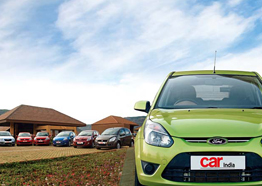

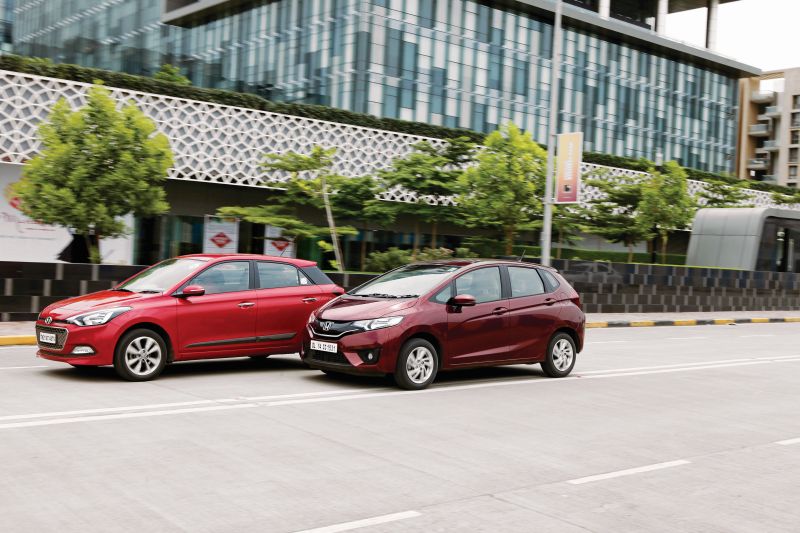
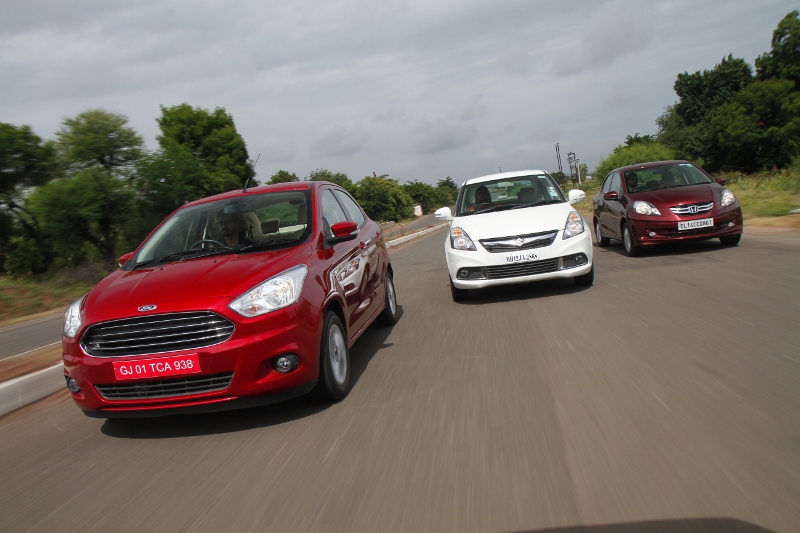
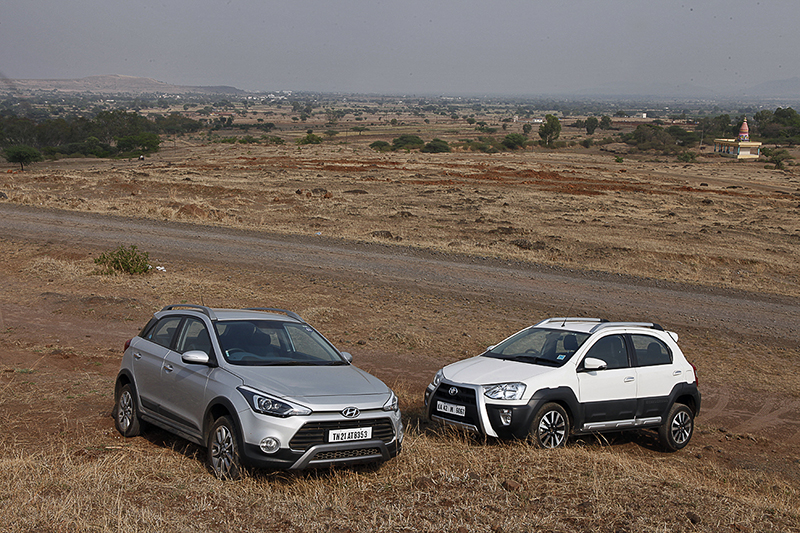
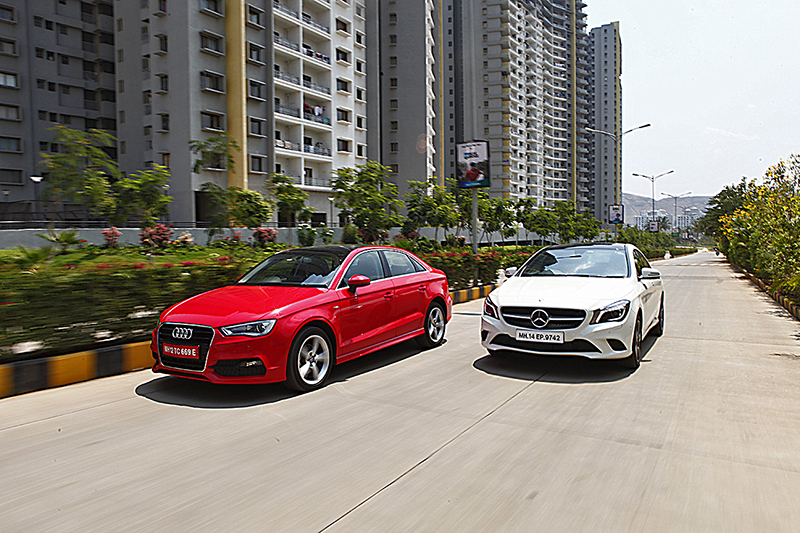

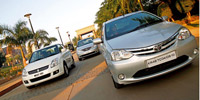

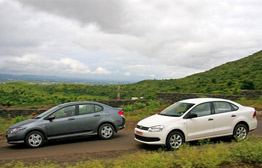
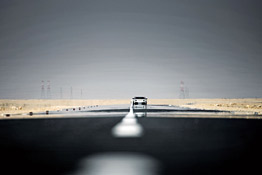
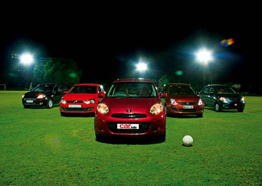
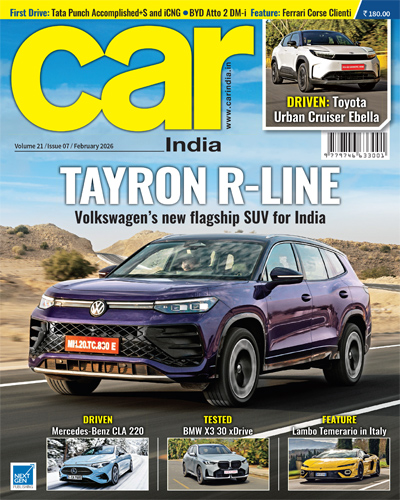


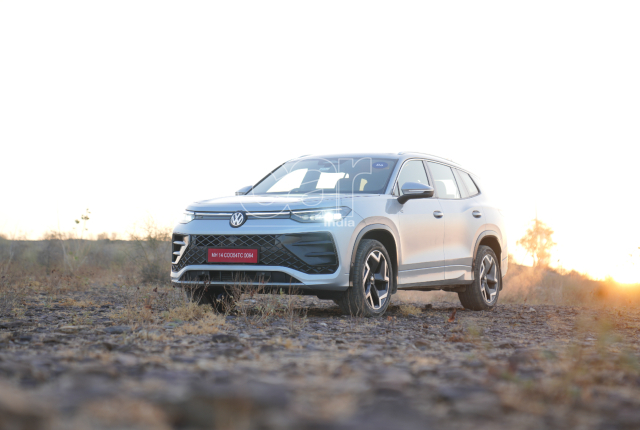
Leave a Reply